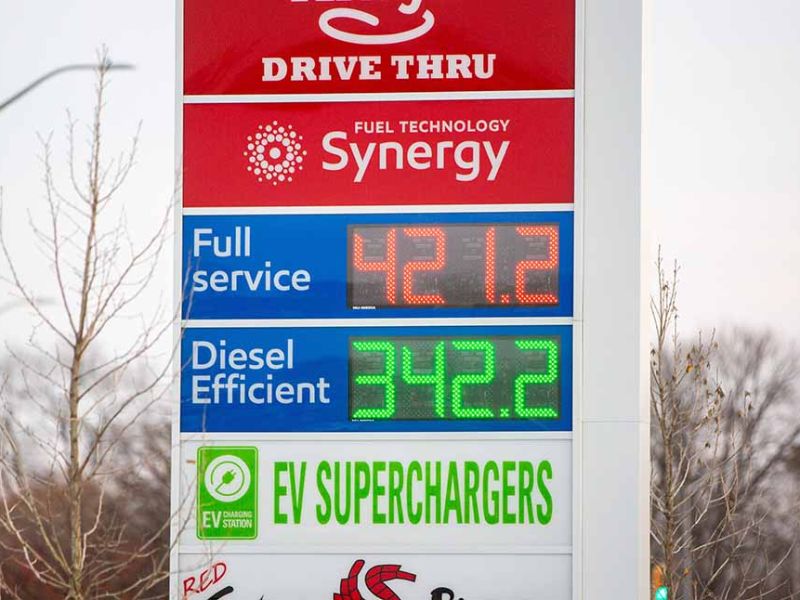Chrysler Confirms Commitment To Windsor
Tuesday March 4th, 2014, 1:47pm
Hello time traveller!!
This article is 4105 days old.
The information listed below is likely outdated and has been preserved for archival purposes.

The Windsor Assembly Plant as seen Tuesday March 4th, 2014
Chrysler is no longer looking for financial assistance from the government and is planning for the next generation minivan’s production in Windsor after a morning of reports of uncertainty.
Chrysler Group LLC reports that they have told Prime Minister Stephen Harper and the Premier of Ontario Kathleen Wynne of their intention to withdraw all requests for financial assistance in relation to the development of its two assembly plants in Windsor and Brampton.
Chrysler says that they no longer want their projects used as “political football” and called the process “unnecessary and ill-advised” and “ultimately not be to the benefit of Chrysler”.
Chrysler says that they will fund whatever capital requirements the Canadian operations require from their own finances.
Chrysler has also confirmed its intention to begin to “allocate to the Windsor plant the development and industrialization of the next ‘people carrier’ architecture” — the next minivan.
Chrysler says “These capital allocation decisions will be governed by and continuously monitored on the basis of a variety of considerations that determine the competitiveness of Canada first and foremost in a NAFTA context but also increasingly on a global basis. Of particular importance for this evaluation they say will be the outcome of collective bargaining negotiations that will be carried out in 2016 with UNIFOR.”
“Our commitment to Canada remains strong,” says Chrysler CEO Sergio Marchionne.
“We have been active participants of the Canadian economy for nearly 90 years, both as a manufacturer and as a seller of cars, trucks and vans. It is my sincere hope that all stakeholders involved commit to do what they can to preserve the competitiveness of the country, and in particular of the province of Ontario. We will do what we can to preserve and nurture the competitiveness of our operations, but we reserve the right, as is true for all global manufacturers, to reassess our position as conditions change.”
Marchionne added, “On a personal note, as a Canadian, I regret my failure in having been unable to convey the highly competitive nature of markets that offer manufacturing opportunities to carmakers that operate on a global scale. Some of the shots across the bow following our initial approaches to the Federal and Provincial governments reveal, apart from political convenience, a somewhat restricted view of Canada as an industrial player in what has become a borderless economy. It is clear that we, at Chrysler, need to do more to explain ourselves and our choices going forward.”























